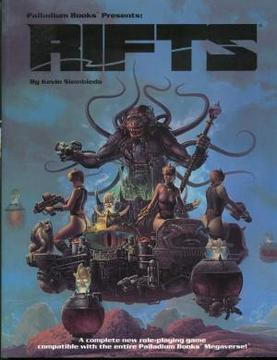Happy Holidays!
This week, in honor of Fritz Leiber's birthday on December 24th, I wanted to discuss one of the most famous stories by the man who literally coined the phrase "Swords & Sorcery", "Ill Met in Lankhmar":
This week, in honor of Fritz Leiber's birthday on December 24th, I wanted to discuss one of the most famous stories by the man who literally coined the phrase "Swords & Sorcery", "Ill Met in Lankhmar":
Winner of both the Hugo and Nebula awards for Best Novella, "Ill Met in Lankhmar" is a prequel to more than thirty years of stories about the adventurous duo. It is filled with Leiber's trademark twists and turns and shows off his economical yet witty style. There's humor in his tongue-in-cheek tone and his world building is excellent, as the city of Lankhmar comes to life in these pages.
This ripping yarn reveals "[t]he second and decisive meeting of Fafhrd and the Gray Mouser," two of the most famous figures in Swords & Sorcery. One dark night, two members of the Thieves' Guild steal some valuable jewels but are, in turn, bushwhacked by a pair of independent operators, Fafhrd and the Grey Mouser. After getting really drunk, the new soul mates (there's a clear bromance brewing) decide to behead Krovas, Grandmaster of the Thieves' Guild, at the behest of their girlfriends, despite Krovas being one of the most powerful mortals in the world.
Of course, it all goes horribly wrong.
I really wanted to like this story but I couldn't get past that we are meant to treat Fafhrd and the Gray Mouser as heroes, when they are not nice guys. Setting aside that they are murderhobos (all they do in kill people and take their stuff), the adventurous duo exhibit some sociopathy in this story, including the murder of a helpless child. Plus, there's the fact that Fafhrd is a deadbeat dad who abandoned his baby mama for some girl he randomly meets.
However, Leiber glosses all this over in the interest of presenting them positively.
Given Leiber's influence on the development of Dungeons & Dragons (see Appendix N of the AD&D Dungeon Master's Guide), another point that should have been in the story's favor is how much it reads like an RPG session.
Fafhrd and the Grey Mouser meet randomly when they are independently trying to rob the robbers. There's no real reason why they should trust each other and form a party. This is fine for an RPG but not so much for a story.
Further, there's the adventurous duo plan and disguises to infiltrate the Thieves' Guild. Both are unbelievable and if there was any realism to "Ill Met in Lankhmar", Fafhrd and the Grey Mouser would have been immediately made, outed and executed.
If I was the DM, I would ask the players *REALLY* want to do this. If they insisted, as an Old Schooler, I would let the dice fall where they may and then explain that the players need to roll up new characters.










